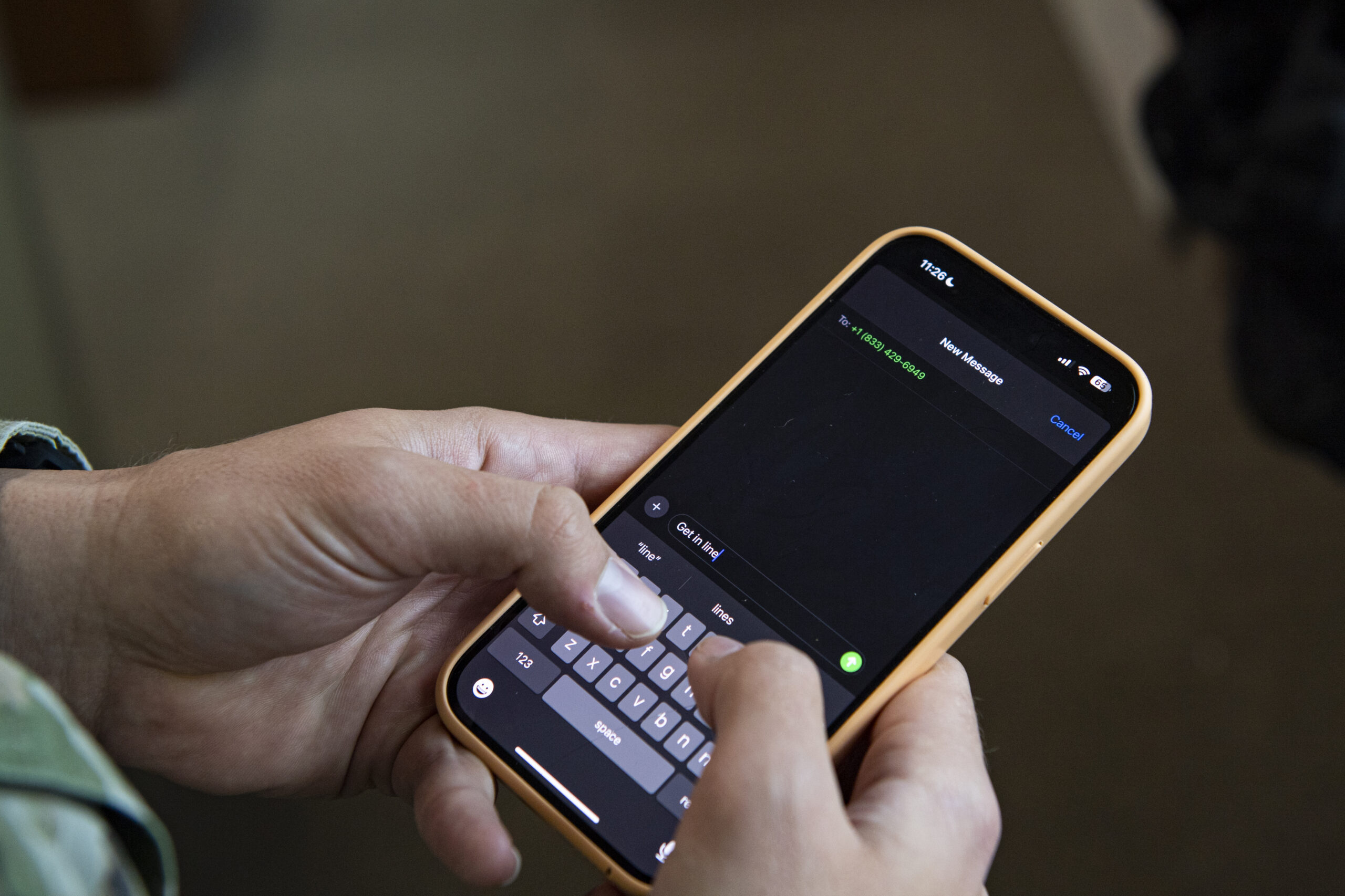

An Army general has decreed that his soldiers no longer need to be chained to their phones after hours to respond to messages about work.
Army Maj. Gen. David S. Doyle, commanding general of the 4th Infantry Division at Fort Carson, Colorado, has created a safe harbor, during which managers cannot send soldiers work-related texts, chats, or messages outside of active mission requirements, Doyle wrote in an April 22 policy letter.
The moratorium on work-related messages starts one hour past the end of the duty day and it lasts until one hour prior to the start of the next duty day, according to the policy letter, which was shared on Reddit.
“Every effort should then be made to avoid texting or messaging others that are not still on duty before 0500 or after 1800 local time,” Doyle wrote in the memo. “This rule does not apply to personal messaging. For example, it does not prohibit communication of personal related information such as ‘unit basketball tournament at 1500 tomorrow’ or ‘three tickets left for the football game.’ This rule also does not prohibit messages related to life, health, or safety.”
Doyle also instructed his soldiers to make every effort to avoid using personal cell phones during official work-related meetings and unit training, which he described as “an unnecessary distraction from mission focus.”
He directed units to designate a place where cell phones will be held for the duration of meetings.
Subscribe to Task & Purpose today. Get the latest military news and culture in your inbox daily.
“Eliminating distraction will assist our leaders in focusing on the mission, training event,
and our Soldiers,” Doyle wrote. “Exceptions to this rule may be granted by the most senior ranking member of the meeting on a case-by-case basis.”
Those who violate this policy face possible disciplinary actions including counseling and corrective training, the memo says. Repeat offenders may be charged under Article 92 of the Uniform Code of Military Justice: Failure to obey an order or regulation.
Doyle made clear in his memo that this policy is not a cell phone ban, nor is it an attempt to limit any soldiers’ personal freedoms.
“The overuse of cell phones creates unnecessary stress on Soldiers and families,” Doyle wrote. “Change is a constant around us, but not all change needs to be instantaneously communicated via text, chat groups or apps. The constant need to be tethered to one’s phone for work related information serves to keep Soldiers and leaders on edge, often unnecessarily concerned about missing important information.”
Since assuming command of the division in June, Doyle has developed a leadership development program based on culture, innovation, and warfighting culture, a source with
Doyle implemented the new policy based on the feedback of soldiers, who said they wanted more predictability with their work schedules and better communication practices, said Army Lt. Col. Joey Payton, a spokesman for the 4th Infantry Division.
In March, Doyle and Command Sgt. Maj. Alex Kupratty hosted two summits about addressing soldiers’ concerns, Payton said. About 50 junior enlisted soldiers attended the first event, and 125 company-level commanders and first sergeants participated in the second one.
Both groups told Doyle and Kupratty that soldiers felt they were unable to disengage from work because they received a stream of messages after the end of the duty day, Payton said.
“Maj. Gen. Doyle and Cmd. Sgt. Maj. Kupratty believe that the issue represents a bigger challenge related to training management,” Payton said. “By building better training management practices, then units will optimize their activities during the duty day so our Soldiers who work extremely hard can enjoy their time when they’re off-duty. This allows the division to improve readiness while taking care of our people.”
The latest on Task & Purpose
- 75th Ranger Regiment sweeps Best Ranger, Best Mortar, and International Sniper competitions
- Married Army couple win back-to-back Sapper school awards
- Special Forces engineers are training to dig ditches and destroy tanks
- This is why Marines were at Mar-a-Lago
- Supreme Court sides with Army veteran in overlapping GI Bill benefits case